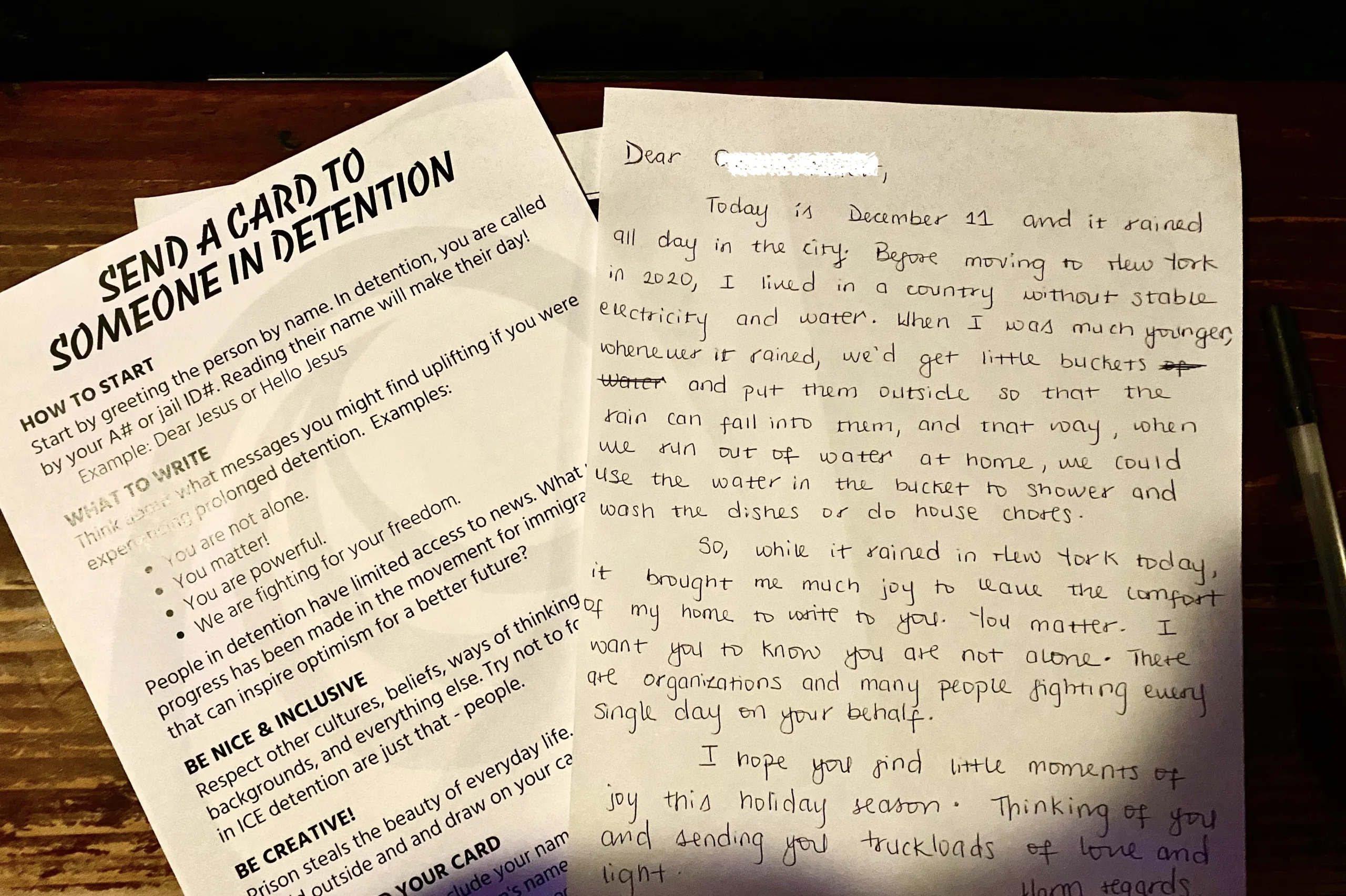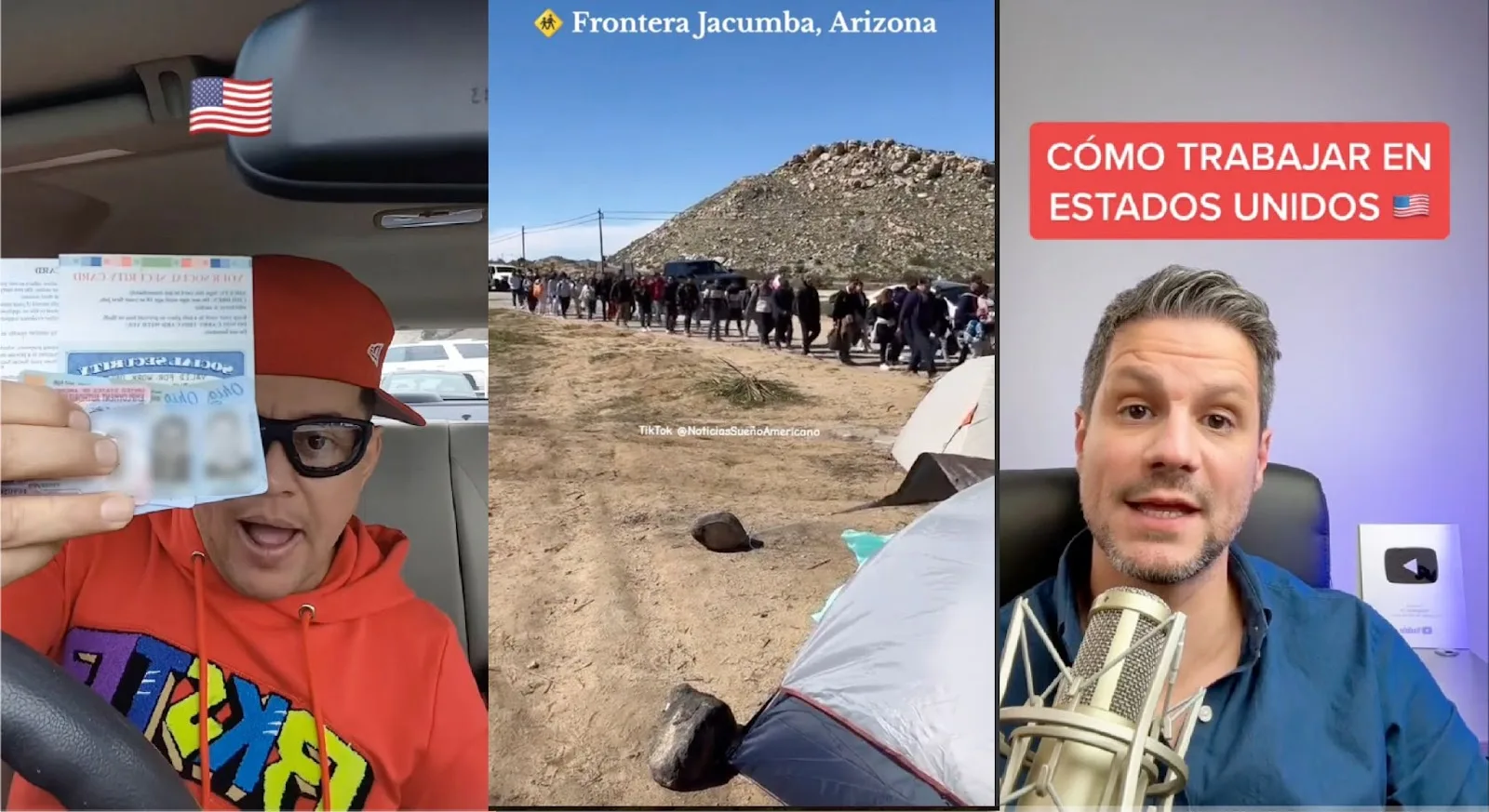Service journalism is core pillar of the work at Documented and we’re excited to announce a new partnership that will accelerate our efforts to provide critical information to vulnerable immigrants in New York City.
Over the past year, Documented has been working with the International Rescue Committee (IRC) to launch a digital platform called Documented.info. This new digital platform is designed to provide asylum seekers and migrants in New York City with reliable, multilingual information covering everything from access to shelter and mental health resources, employment eligibility, and labor rights to information about how to navigate the asylum process and find legal support.
The partnership also represents an exciting first time that a major humanitarian organization partners with a news site in the United States. “We at the IRC are proud to partner with Documented – a deeply aligned multilingual, community-driven journalism organization, and their skilled community correspondents, working to support needs of migrant populations in New York,” said Andre Heller, Director of IRC’s award-winning Signpost Project, which is the technology at the heart of this partnership. “Combined with IRC’s Signpost project, a groundbreaking technology initiative, and IRC’s deep legal expertise, we’re ready to bring these urgently needed activities to scale. The road ahead will present many challenges, to say the least, and only in partnership will we be able to stand with communities to face them.”
For Documented, this is an extension of the work that we have been doing to serve immigrant readers since we launched in 2018. During the pandemic, it became especially clear that the immigrant community urgently needed practical, actionable information to address their concerns about healthcare, as well as the legal system, government programs, and even basic necessities like where to find food. We received so many questions that it made sense to start documenting the answers we were giving. Under Nicolas Rios, we created a collection of resource guides, explainers, and articles, all designed to address the questions we were being asked. To ensure accuracy and relevance, we collaborated with immigration lawyers, advocates, experts in the field, and individuals familiar with immigrant communities, allowing us to provide a comprehensive breakdown that directly addressed the communities’ needs.
Documented’s staff, including Rommel H. Ojeda, our correspondent for Spanish-speaking communities, began interacting with readers and immigrant communities on Documented’s WhatsApp platform. He then began to populate Documented’s website with a guide of resources to help the immigrant and undocumented population in New York City find information about legal representation, financial relief, and more. That guide grew into a list of hundreds of helpful resources on our website, which consists of information about education, child care, employment, workers rights, finances, food aid, health, safety, housing, shelter, legal services, scams, and misinformation, to name a few.
“When New York City had asylum seekers coming in, we saw that a lot of the obstacles they were facing were also related to the guides that we had already created for migrants that were here five to 10 years before them,” Ojeda said. “I think just having this constant dialog with the community where we are answering their questions through experts, we’re also able to provide the guides to new people in the sense that we can send it to them as soon as they contact us. With this new partnership, we are able to continue doing that work, but on a larger scale.”
Documented.info addresses the unique challenges asylum seekers and immigrants, especially those from underserved backgrounds, face in navigating complex legal systems and services. Immigrants can message their questions to Documented.info via popular messaging platforms Whatsapp and Facebook Messenger. Journalists and experts respond – in English, Spanish, Haitian Creole, and French at launch – and share actionable resources, vetted services and original, targeted reporting. The platform aims to close critical information gaps, counter misinformation affecting immigrant communities and build trust.
“I’m pretty glad that we have the Haitian Creole version because we have thousands of newly arrived Haitian immigrants who came to New York, especially under the Humanitarian Parole Program,” said Ralph Thomassaint Joseph, Documented’s correspondent for non-Spanish-speaking Caribbean communities, who has been leading our engagement with communities on Nextdoor. “I’ve been dealing with a couple of questions on social media or via email. So with the new IRC and Documented platform, Documented.info, I’m really excited to work on this, and I think it’s a great partnership between Documented and IRC, combining a news platform doing service journalism with an NGO, who can help refer thousands of people to get this critical information.”
The heart of Documented.info lies not only in its technology but in the community correspondents who ensure that every piece of information is accurate and responsive to the real needs of asylum seekers. Edith Tapia, technical advisor, Cross Border and Asylum at IRC said that this partnership with Documented brings together two organizations “deeply committed to ensuring that immigrants in New York City have the information and resources they need to thrive. Documented.info is not just a platform; it’s a bridge that connects people to life-saving services and empowers them with the knowledge they need to navigate the complexities of their new lives.”
Mazin Sidahmed, Documented’s co-founder and executive director, called this partnership a “first of its kind in our industry” and said it will allow Documented to go “broader and deeper to bring reliable information to the communities we serve.” Documented.info will allow more of the city’s newest New Yorkers to have access to information that will help them better navigate and understand living in the city, Sidahmed added. “This will allow us to scale Documented’s existing work with this groundbreaking technology.”
Documented.info will also be shared through mobile welcome teams created in partnership with Afrikana and Venezuelans and Immigrants Aid (VIA), offering on-the-ground legal aid, case management and humanitarian assistance at key transit centers across the city.















